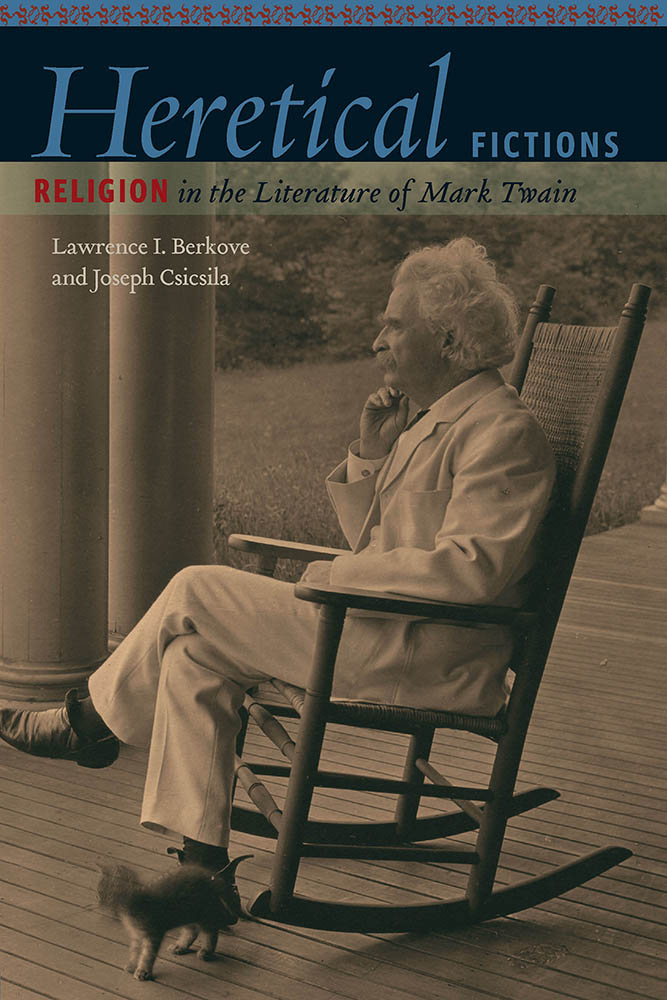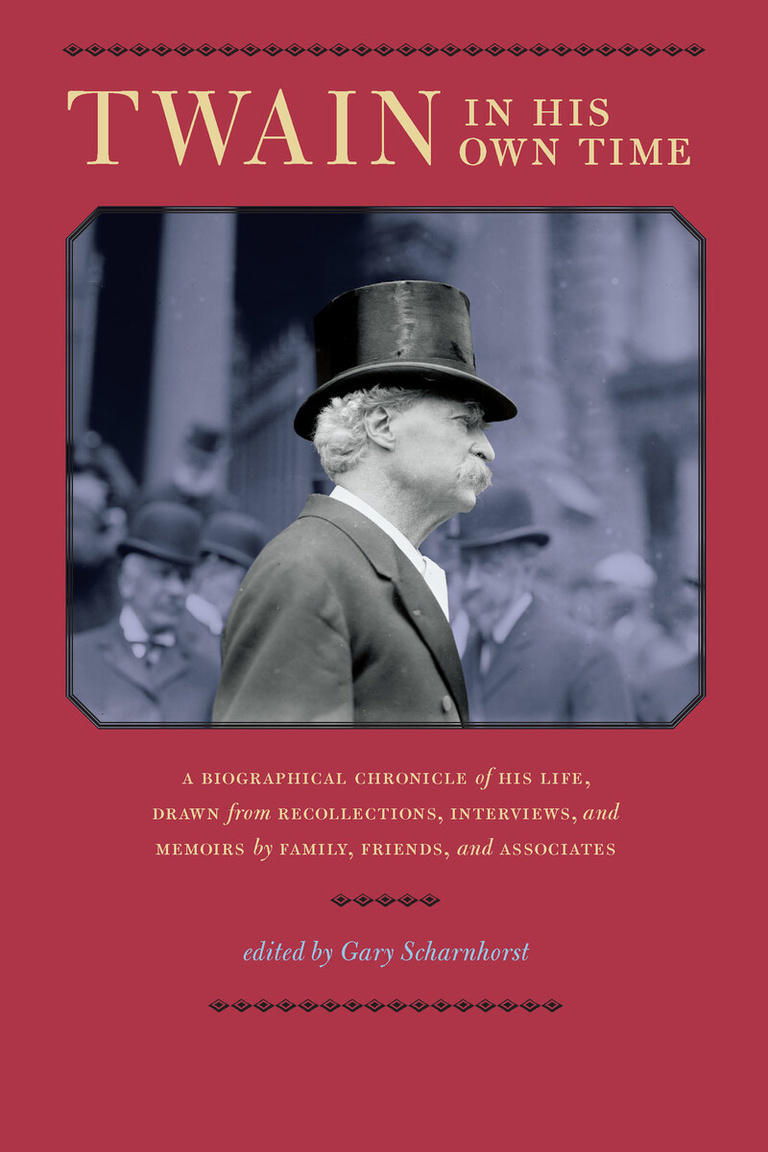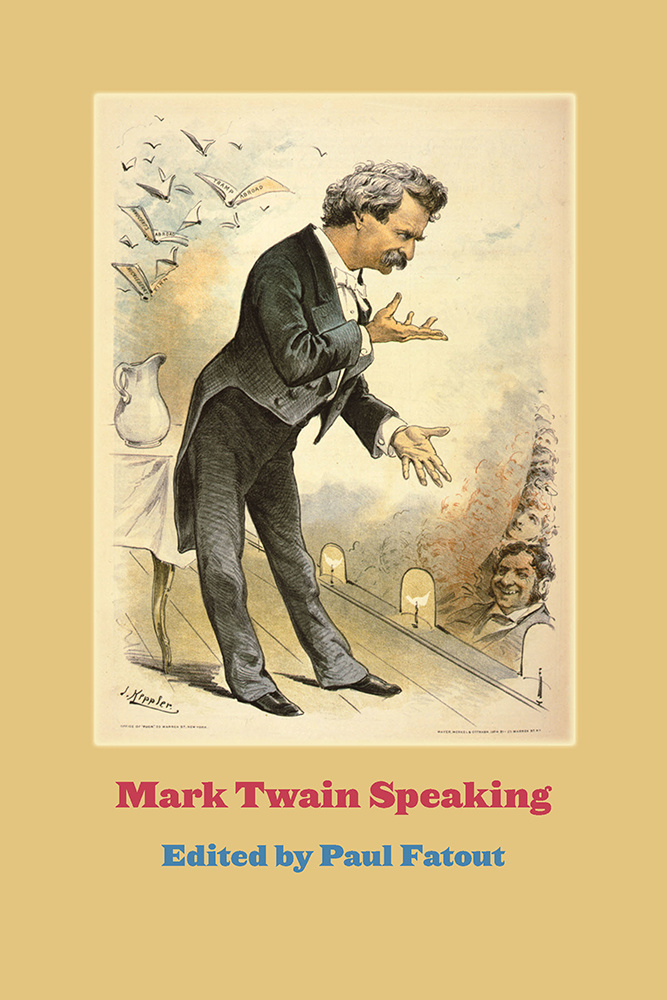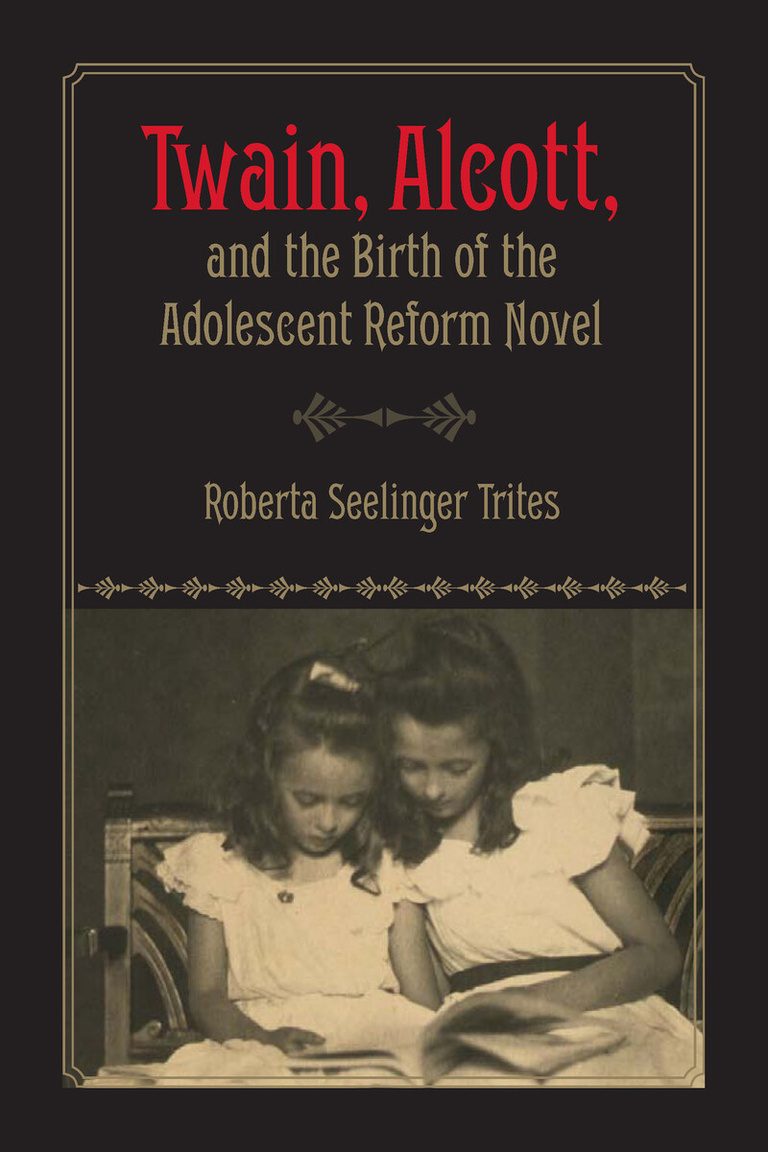Challenging the prevailing belief that Mark Twain’s position on religion hovered somewhere between skepticism and outright heresy, Lawrence Berkove and Joseph Csicsila marshal biographical details of Twain’s life alongside close readings of his work to explore the religious faith of America’s most beloved writer and humorist. They conclude not only that religion was an important factor in Twain’s life but also that the popular conception of Twain as agnostic, atheist, or apostate is simply wrong.
Heretical Fictions is the first full-length study to assess the importance of Twain’s heretical Calvinism as the foundation of his major works, bringing to light important thematic ties that connect the author’s early work to his high period and from there to his late work. Berkove and Csicsila set forth the main elements of Twain’s “counter-theological” interpretation of Calvinism and analyze in detail the way it shapes five of his major books—Roughing It, The Adventures of Tom Sawyer, Adventures of Huckleberry Finn, A Connecticut Yankee in King Arthur's Court, and No. 44, The Mysterious Stranger—as well as some of his major short stories. The result is a ground-breaking and unconventional portrait of a seminal figure in American letters.
“Every now and then a book comes along that illuminates Mark Twain's literature like a lightning flash, startling us about how casually we have overlooked a fundamental truth. Heretical Fictions is such a work, boldly redrawing the map of Twain studies and ingeniously tracing a vital path of thought that underlies his major writings.”—Alan Gribben, author, Mark Twain’s Library: A Reconstruction
“I balked a little when I read that ‘religion was a main concern of Twain during his entire life,’ but Berkove and Csicsila soon brought me round to their point of view. This is in good part because they are not interested in listing biblical allusions and splitting theological hairs. Rather, they stick to the high ground and bring nuanced literary perceptions to their task. Their theological foundation is strong, as is their feel for the importance of religion in Twain's America, and they make clear that Twain was a Calvinist in his basic understanding of God, heaven, hell, free will, and human nature. They make an original and compelling case for the defining significance of religion in the works of Mark Twain.”—Forrest Robinson, author, In Bad Faith: The Dynamics of Deception in Mark Twain's America
“An important contribution to Twain studies, Heretical Fictions offers a provocative argument for the centrality of Calvinist religious thought in Twain's works that will surely spark significant debate. While readers may balk at some of their conclusions, Berkove and Csicsila offer close readings of Twain's major fiction that overall mount a formidable and compelling case for the pervasiveness of his struggles with—and against—the implications of a Calvinist worldview. Their reading reveals a coherent thematic structure that undergirds some of Twain's most apparently episodic major fiction, but more importantly, it offers an intriguing explanation for many of Twain's apparently contradictory stances during his lifetime. At its strongest, this book explores the serious moral inquiry beneath the surface of much of Twain's humor, arguing that Twain used fiction to test the emerging social and intellectual movements of his day against the Calvinist worldview, sometimes desperately seeking viable alternatives. Heretical Fictions argues cogently that the apparent pessimism of Twain's last ten years was not the morbid preoccupation of an aging and embittered man but the compassionate culmination of a lifelong quest to test the reluctant conclusions of a ‘God-haunted mind.’”— Sharon D. McCoy, University of Georgia



